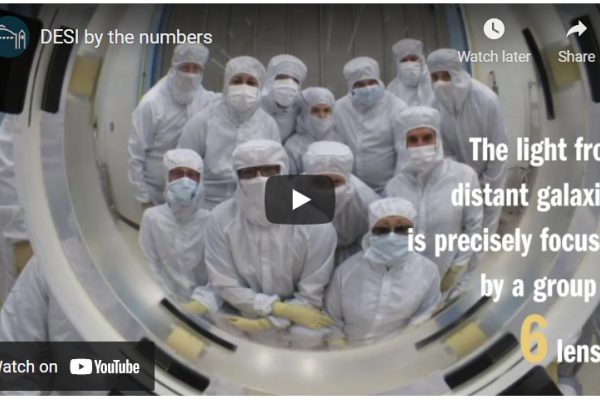DESI project begins operation with help from Prof. Klaus Honscheid and Prof. Paul Martini

With large contributions from Ohio State faculty and researchers, a five-year quest to map the universe and unravel the mysteries of “dark energy” officially began Monday at Kitt Peak National Observatory near Tucson, Arizona, when the Dark Energy Spectroscopic Instrument (DESI) started capturing and studying light from tens of millions of galaxies and other distant objects in the universe.
DESI is an international science collaboration managed by the Department of Energy’s Lawrence Berkeley National Laboratory (Berkeley Lab) with primary funding from DOE’s Office of Science.
By gathering light from some 30 million galaxies, project scientists say DESI will help them construct a 3D map of the universe with unprecedented detail. The data will help them better understand the repulsive force associated with “dark energy” that drives the acceleration of the expansion of the universe across vast cosmic distances.
Faculty members and researchers from Ohio State’s Center for Cosmology and AstroParticle Physics (CCAPP) have been a part of the project since the beginning. Physics professor Klaus Honscheid and astronomy professor Paul Martini were instrumental in designing and constructing the new instrument, which at its core includes 5,000 minuscule “fiber positioner robots” that aim DESI’s sensors at precise locations in the night sky.

